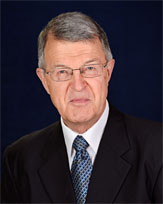Dr. Robert F. Kidd
Dr. Kidd passed away peacefully in the embrace of his family on February 17th, 2019. His obituary is available here: https://www.naant.org/robert-kidd-in-memoriam.
Dr. Kidd's practice is permanently closed.
We have turned all medical records over to RSRS, a medical records company. If you wish to retrieve your medical record, please submit a request directly to RSRS. We do not have any charts in our possession, and we have no way to look up any detail of any patient's medical history.
We regret that we are unable to make any referrals to other health-care providers.
For non-medical record related inquiries, please contact rfkidd@rfkidd.com.
